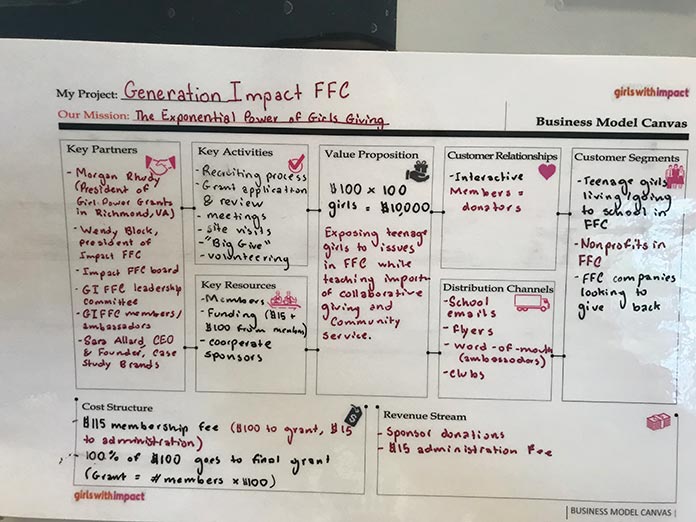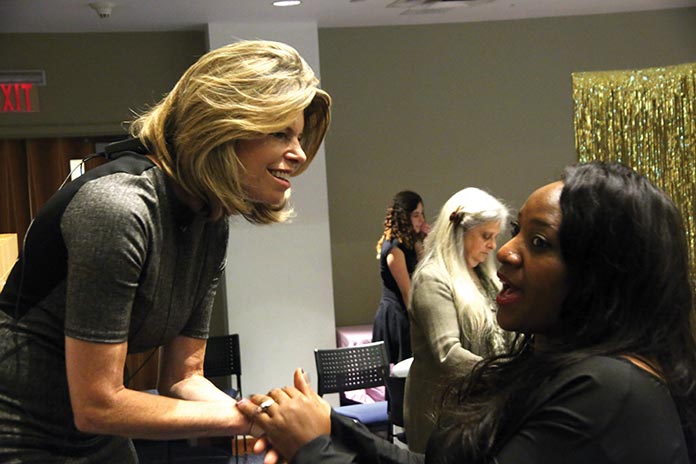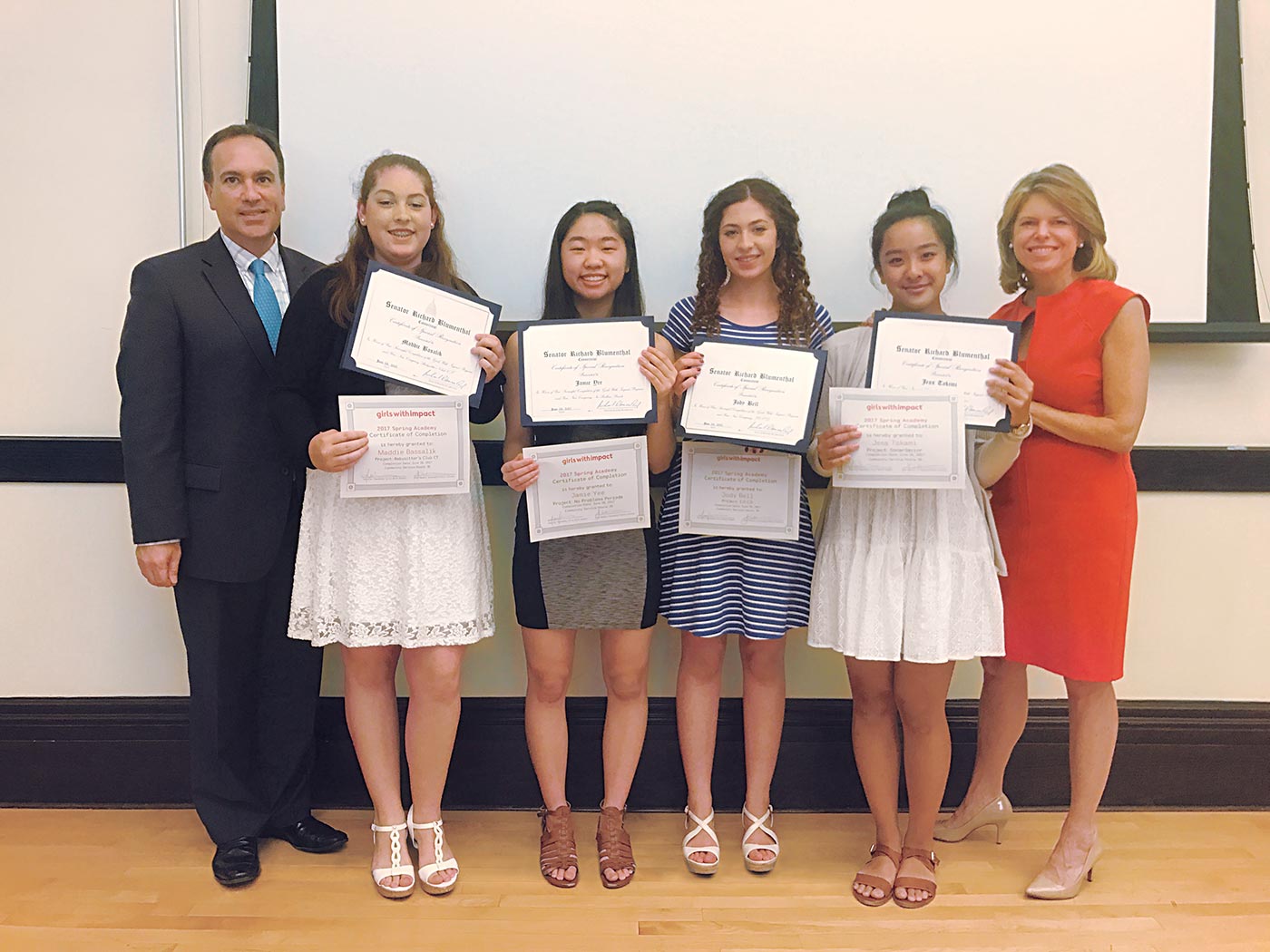At the age of 15, Isabel Allard launched her own nonprofit. The Greenwich Academy sophomore modeled her teen giving circle, Generation Impact Fairfield County, on a local philanthropic group for adults; she wanted to do the same for issues that affected local youth. For its first grant, she plans to raise $10,000.
Another Connecticut teenager, Rachel Motley, 16, founded Crown Kits, a beauty company focused on African American hair. Her business plan earned her full scholarships at both Babson College and Howard University.
Meanwhile, Jody Bell, 16, had finished talking with the office of Connecticut Governor Dannel Malloy. She created I.C.O.D.—which stands for In the Case of Deportation—as a resource guide for kids whose parents may be deported. It includes step-by-step instructions on how to apply for a U.S. passport, and what forms you need to appoint a guardian.
These may seem like disparate projects, but there are two things uniting them all: Connecticut Senator Richard Blumenthal has given all of these girls a Certificate of Commendation for their work, and each one of them is a graduate of Girls With Impact (girlswithimpact.com), an ambitious entrepreneurship program for teen girls. It’s a 12-week MBA-like program, where girls walk in with a seed of an idea (or not), and leave with a business plan. The program covers topics you might see at an elite business school, like researching a market need, developing a value proposition, creating customer personas, prototyping and forming partnerships, along with softer skills that are rarely taught anywhere, like networking and handling rejection. “The first time we brought these girls together to show off their final projects, their parents’ jaws just dropped,” says Jennifer Openshaw, Girls with Impact’s founder and CEO. “It really shows that our girls are capable of far more than what we teach them.”

Openshaw, a Greenwich, CT, resident, should know about overcoming expectations. “I came from nothing,” she says. “I worked as a maid in a motel at 14, and I raised my two younger brothers. But I always knew that I wanted to have a big impact on people.” She did so in Silicon Valley, founding the Women’s Financial Network (which, fittingly, in 2000 was acquired by Muriel Siebert, the first woman with a seat on the New York Stock Exchange). “In the years since, women haven’t made that much progress in the workplace,” she says. “Women make up only 6 percent of CEOs, 36 percent of entrepreneurs and 14 percent of engineers. I was in Davos, at the World Economic Forum, and I saw all these CEOs talking about the need for more women and how we want to get to 50/50 by 2030. I thought they were trying to get to the root of the problem, but I wanted to get to the root of the solution. If employers need better skills and they want women, then we need to better prepare our girls in the next generation.”
She started building the Greenwich-based Girls With Impact in 2015, and launched a pilot class with five students in 2017. Next year, the goal is to send 1,500 girls through the program. She’s discovered a welcoming business community in the area, and companies like Eversource, Pitney Bowes, Houlihan Lawrence and Fairfield County’s Community Foundation have all been partners. “It’s a great way to keep employees engaged,” she says. “They can sponsor girls, they can impact the local economy, they can be mentors, and they can enhance their reputation around diversity and inclusion.”

Openshaw has expanded into New York City, and she’s seeking partnerships to take the program nationwide. And, with the results she gets, she’d be foolish not to. At the end of the course, 100 percent of the participants said they felt more career-ready; 83 percent said they could better distinguish themselves on college or scholarship applications, and 73 percent said they had higher overall confidence. “I had this notion that business was unpleasantly competitive,” says Bell. “After joining Girls With Impact, I became connected with a group of incredibly supportive women who genuinely just want to see other women succeed. It also makes me look for opportunities to support and invest in the success of other women.”




